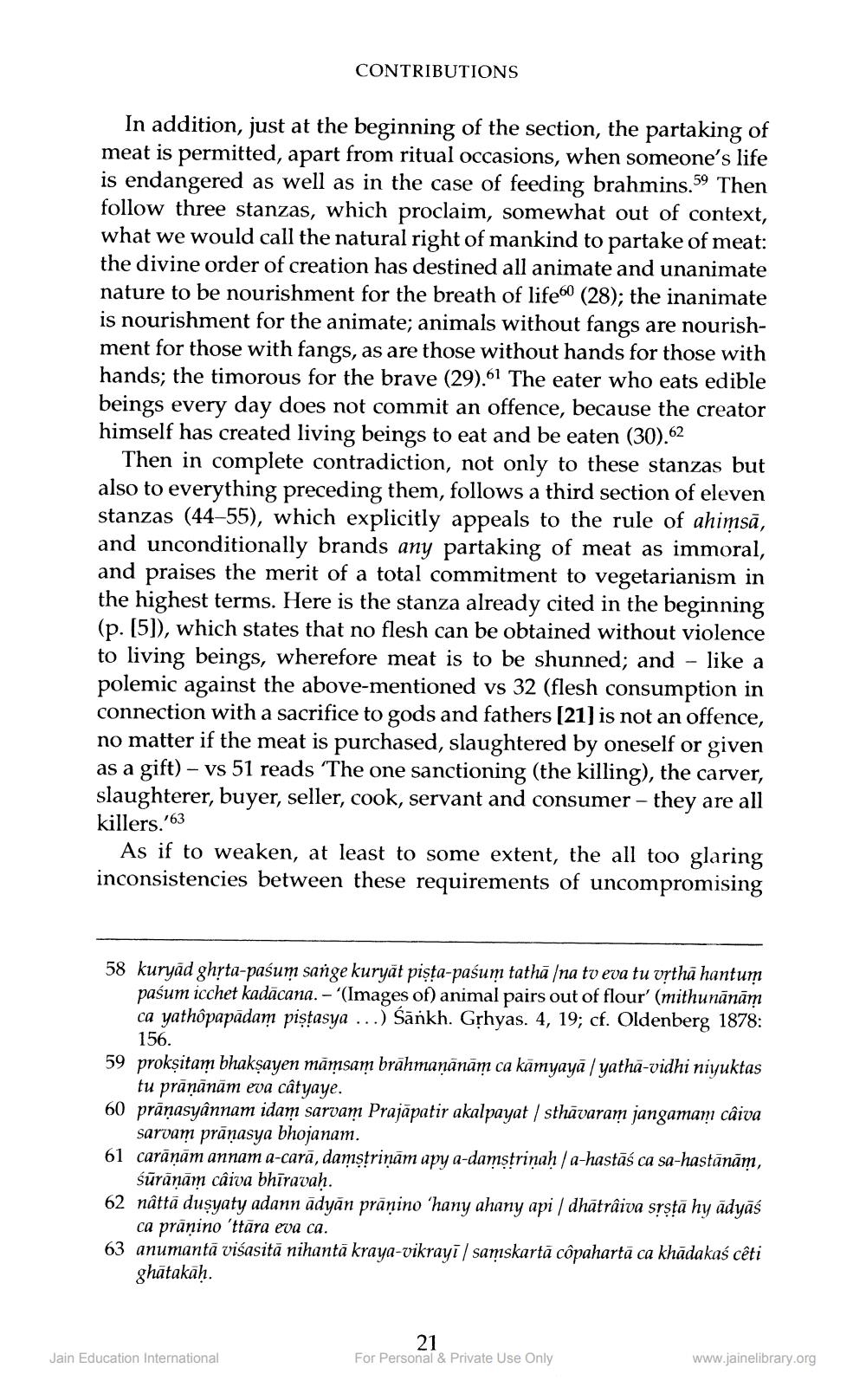________________
CONTRIBUTIONS
In addition, just at the beginning of the section, the partaking of meat is permitted, apart from ritual occasions, when someone's life is endangered as well as in the case of feeding brahmins. 59 Then follow three stanzas, which proclaim, somewhat out of context, what we would call the natural right of mankind to partake of meat: the divine order of creation has destined all animate and unanimate nature to be nourishment for the breath of life (28); the inanimate is nourishment for the animate; animals without fangs are nourishment for those with fangs, as are those without hands for those with hands; the timorous for the brave (29).61 The eater who eats edible beings every day does not commit an offence, because the creator himself has created living beings to eat and be eaten (30).62
Then in complete contradiction, not only to these stanzas but also to everything preceding them, follows a third section of eleven stanzas (44–55), which explicitly appeals to the rule of ahimsā, and unconditionally brands any partaking of meat as immoral, and praises the merit of a total commitment to vegetarianism in the highest terms. Here is the stanza already cited in the beginning (p. [5]), which states that no flesh can be obtained without violence to living beings, wherefore meat is to be shunned; and - like a polemic against the above-mentioned vs 32 (flesh consumption in connection with a sacrifice to gods and fathers (21) is not an offence, no matter if the meat is purchased, slaughtered by oneself or given as a gift) - vs 51 reads "The one sanctioning (the killing), the carver, slaughterer, buyer, seller, cook, servant and consumer - they are all killers.'63
As if to weaken, at least to some extent, the all too glaring inconsistencies between these requirements of uncompromising
58 kuryād ghrta-paśum sange kuryät pista-paśum tathā /na tv eva tu vrthā hantum
pasum icchet kadācana. - '(Images of) animal pairs out of flour' (mithunānām ca yathôpapādam piştasya ...) Sankh. Gșhyas. 4, 19; cf. Oldenberg 1878:
156.
59 proksitam bhakşayen māmsam brāhmaṇānām ca kamyayā / yathā-vidhi niyuktas
tu prāņānām eva câtyaye. 60 prāṇasyânnam idam sarvam Prajāpatir akalpayat / sthāvaram jangamam câiva
sarvam prāṇasya bhojanam. 61 carānām annam a-carā, damstrinām apy a-damstrinah /a-hastāś ca sa-hastānām,
śūrāņām câiva bhīravah. 62 nâttâ dusyaty adann ādyan prāņino 'hany ahany api / dhātrâiva srstā hy ădyās
ca pranino 'ttara eva ca. 63 anumantā visasitā nihantā kraya-vikrayī / samskartā côpahartā ca khādakaś cêti
ghātakāḥ.
21 For Personal & Private Use Only
Jain Education International
www.jainelibrary.org




